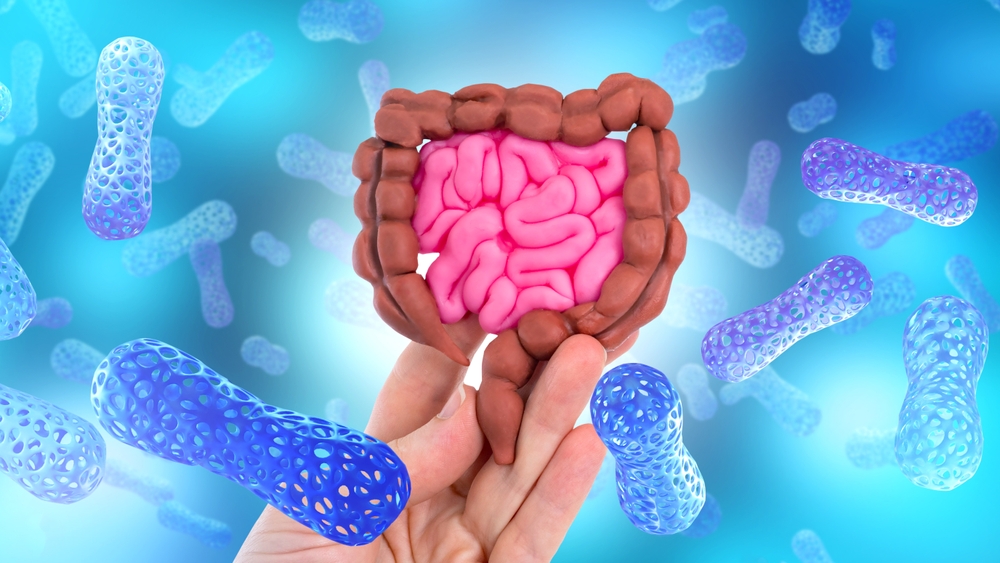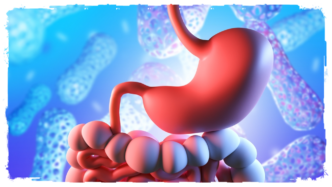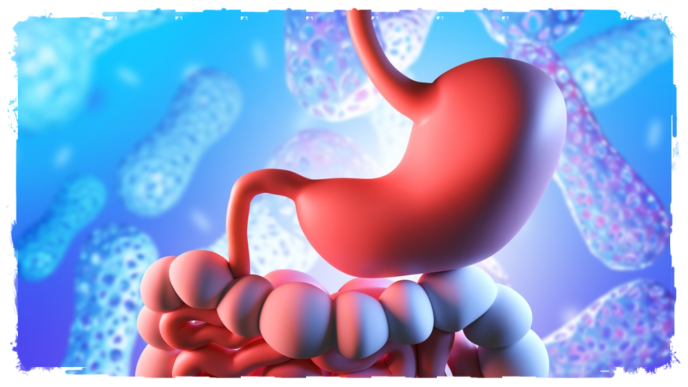WORDS LIYANA TAN ABDULLAH & DR NURUL HUDA RAZALLI
FEATURED EXPERTS
 LIYANA TAN ABDULLAH LIYANA TAN ABDULLAHBSc Applied Chemistry UM Student of Master Clinical Nutrition Universiti Kebangsaan Malaysia |
 DR NURUL HUDA RAZALLI DR NURUL HUDA RAZALLISenior Lecturer Dietetic Programme Centre for Healthy Ageing and Wellness (H-CARE) Faculty of Health Sciences Universiti Kebangsaan Malaysia (UKM) |
GETTING TO KNOW PROBIOTICS BETTER
- Probiotics are live bacteria and yeasts that are beneficial for your health, especially your digestive system. Often referred to as ‘good’ or ‘helpful’ bacteria, they help keep your gut healthy.
- Probiotics are naturally found in your body, but they can also be ingested through certain foods and supplements.
- Probiotic products contain selective, beneficial types of microbes to add to the populations already living in your body.
- They are crucial in maintaining a balanced gut microbiota, the community of microorganisms living in the intestines. The human gut is home to trillions of bacteria, a complex ecosystem that plays a vital role in digesting food, synthesizing nutrients, and defending against pathogens. Probiotics contribute to this ecosystem by enhancing its function and restoring its natural balance when it has been disrupted.
- Some studies suggest that certain probiotics may aid in weight loss by influencing metabolism and fat storage.
PROBIOTIC PRODUCTS IN THE MARKET
- Many probiotics are oral supplements designed to be ingested into your gastrointestinal tract.
- Others are topical products that you can apply to your skin or to the mucous membranes inside your body cavities, like your nose or genitals. These are all places where beneficial microbes commonly live.
- You can also obtain probiotics from your natural food. Yes, tempeh, yogurt, kefir, kimchi, sourdough bread, and other usually fermented foods are probiotic-rich.
THE LINK BETWEEN PROBIOTICS & OBESITY
Variation in the composition of the gut microbiota results in health deterioration due to the mechanisms they employ to maintain appropriate homeostasis, including immune system modification, metabolic signaling, endocrine signaling, neuronal signaling, and epigenetics.
The condition is closely linked to various metabolic disorders, including elevated cholesterol levels, type 2 diabetes, heart and vascular diseases, and osteoporosis.
Consequently, addressing obesity through prevention and treatment is crucial, more so with the integration of innovative scientific approaches and technologies like artificial intelligence.
Probiotics, regarded by the WHO and FAO in 2002 as beneficial live microorganisms that confer health benefits when consumed in adequate amounts, are a testament to this.
They positively affect the host by establishing themselves within the human body and altering the microbial composition at specific sites. By modulating the mucosal and systemic immune functions or adjusting the intestinal microbiota balance, they facilitate nutrient absorption and intestinal health, offering health-promoting effects whether as single or mixed microorganisms with a defined composition.
The connection between gut health and obesity has become a focal point of modern medical research. Studies suggest that the composition of gut microbiota in obese individuals differs significantly from that of healthy individuals, indicating a potential link between gut microbes and obesity.
Probiotics interact with the host through pattern recognition receptors in intestinal cells, such as Toll-like receptors, and these can play multiple roles in the individual’s body.
The mechanisms of action of probiotics associated with obesity control may be modulation of endogenous microbiota functions that affect interaction with the host, competitive exclusion of pathogens, improved epithelial barrier function and other innate immune responses, modulation of fat absorption and excretion, reduced endotoxemia and inflammation, and modulation of numerous genes involved in hepatic lipogenesis or lipolysis in adipose tissue.
Gut Microbiota and Body Weight Regulation
Research shows that certain strains of gut bacteria are more prevalent in individuals who are obese compared to those who are not. These bacteria may influence weight by affecting the body’s metabolism, increasing energy extraction from food, and altering the way fat is stored in the body.
Probiotics and Weight Loss
Research indicates that specific probiotic strains could be effective for weight loss in obese individuals.
Some studies have found that introducing specific probiotic strains such as Hafnia alvei can help reduce body weight and body mass index (BMI) in obese individuals.
Probiotics may aid weight loss by improving the balance of the gut microbiota, reducing inflammation, and influencing hormones and proteins related to appetite and fat storage.
Prebiotics and Synergistic Effects
Prebiotics, non-digestible fibers that feed beneficial gut bacteria, can also play a role in managing obesity. When combined with probiotics, prebiotics can enhance the growth and activity of healthy gut bacteria, leading to improved gut health and potentially contributing to weight loss.
HOW CAN OUR GUT MICROBIOTA BECOME UNBALANCED?
External Factors
Diet, drug intake, and lifestyle habits—smoking, alcohol intake, and disrupted sleeping habits—which can easily influence the bacterial communities in the gut.
Bacterial Metabolites from the Gut
These metabolites, such as SCFAs, gamma-aminobutyric acid (GABA), and tryptophan, have a substantial influence on the regulation of the gut-brain axis.
For example, even a short-term (5-days) consumption of diets composed entirely of animal or plant products alters the microbial community structure, affecting microbial gene expression among individuals.
Fermentable dietary fibre, prebiotics, and probiotic-based diets contribute to the proliferation of SCFA-producing bacteria, which might influence gut-brain communication and brain function directly or indirectly through immune, endocrine, vagal, and other humoral pathways.
THE CHALLENGES IN USING DIET AS A MEANS TO ACHIEVE & MAINTAIN BALANCED GUT MICROBIOTA
Firstly, individual variability plays a significant role. The gut microbiota is highly personal and can be influenced by genetics, age, diet, lifestyle, and even antibiotic use.
This variability means that what works for one person may not work for another, making personalized nutrition and probiotic supplementation strategies necessary.
Furthermore, modern lifestyles and diets often work against the maintenance of a healthy gut microbiota. Processed foods, high sugar consumption, and the overuse of antibiotics can disrupt the delicate balance of gut bacteria, making it difficult to restore or maintain a healthy gut environment.
Additionally, stress and lack of sleep can also negatively affect gut health, adding another layer of complexity to managing gut microbiota.
Lastly, the current regulatory environment regarding probiotics and dietary supplements can be a challenge for consumers. The market is flooded with products claiming to support gut health, but not all of these products are effective or safe. The lack of stringent regulation and standardized testing protocols makes it challenging for individuals to make informed choices about the probiotics and prebiotics they choose to incorporate into their diets.
WHAT CAN WE DO TO MAINTAIN A HEALTHY GUT MICROBIOTA?
Beyond diet and supplementation, holistic approaches that encompass emotional well-being and physical activities play a crucial role in maintaining a balanced gut microbiota.
Healthy Food and Physical Activities
Use the Malaysian Healthy Plate as simple yet effective guide to help you balance your meals on a 10-inch plate.
Imagine dividing your plate into 4 parts.
- One quarter is dedicated to carbohydrates like rice, noodles, bread, grains, or tubers, ensuring you have the energy to power through your day.
- The next quarter is reserved for proteins such as fish, poultry, meat, or legumes, supporting muscle repair and growth.
- The remaining half is where colourful vegetables and fruits come in, flooding your body with essential vitamins, minerals, and fiber.
Healthy Emotional Well-being
- Practice activites that promote emotional well-being, such as mindfulness, meditation, adequate sleep, and stress management techniques.
Through a comprehensive approach that includes healthy eating, exercise, and stress reduction, individuals can support their gut microbiota’s balance, thereby enhancing their overall health and well-being.
References:
- Coradduzza, D., Sedda, S., Cruciani, S., De Miglio, M. R., Ventura, C., Nivoli, A., & Maioli, M. (2023). Age-related cognitive decline, focus on microbiome: A systematic review and meta-analysis. International journal of molecular sciences, 24(4), 3756. https://doi.org/10.3390/ijms24043756
- Dalile, B., Van Oudenhove, L., Vervliet, B., & Verbeke, K. (2019). The role of short-chain fatty acids in microbiota-gut-brain communication. Nature reviews gastroenterology & hepatology, 16(8), 461-478. https://doi.org/10.1038/s41575-019-0157-3
- Déchelotte, P., Breton, J., Trotin-Picolo, C., Grube, B., Erlenbeck, C., Bothe, G., Fetissov, S. O., & Lambert, G. (2021). The probiotic strain H. alvei HA4597® improves weight loss in overweight subjects under moderate hypocaloric diet: A proof-of-concept, multicenter randomized, double-blind placebo-controlled study. Nutrients, 13(6), 1902. https://doi.org/10.3390/nu13061902
- Jokela, M., Virtanen, M., Batty, G. D., & Kivimäki, M. (2016). Inflammation and specific symptoms of depression. JAMA Psychiatry, 73(1), 87-88. https://doi.org/10.1001/jamapsychiatry.2015.1977
- Luoto, R., Kalliomäki, M., Laitinen, K., & Isolauri, E. (2010). The impact of perinatal probiotic intervention on the development of overweight and obesity: Follow-up study from birth to 10 years. International journal of obesity, 34(10), 1531-1537. https://doi.org/10.1038/ijo.2010.50
- National Center for Complementary and Integrative Health. (2019, August). Probiotics: What you need to know. https://www.nccih.nih.gov/health/probiotics-what-you-need-to-know
- Zhang, J., Mu, J., Li, X., & Zhao, X. (2022). Relationship between probiotics and obesity: A review of recent research. Food science and technology, 42, e47621. https://doi.org/10.1590/fst.47621












